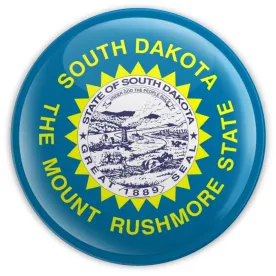It’s official! Alabama is the only remaining state lacking a data breach notification statute. On March 21, 2018 South Dakota Attorney General Marty Jackley announced that Governor Dennis Daugaard signed into law the state’s first data breach notification law, after unanimous approval by both chambers of the state legislature a couple weeks prior. The law will take effect July 1, 2018.
South Dakota’s new law creates a breach notification requirement for any person or business conducting business in South Dakota that owns or retains computerized personal or protected information of South Dakota residents. On trend with recent amendments to other state data breach notification laws, the South Dakota law includes an expansive definition of personal information.
The law defines personal information as a person’s first name or first initial and last name in combination with any one or more of the following data elements:
- Social Security Number;
- driver’s license number or other unique identification number created or collected by a government body;
- account, credit card or debit card number, in combination with any required security code, access code, password, routing number, PIN or any additional information that would permit access to a person’s financial account;
- health information; and
- an identification number assigned to a person by the person’s employer in combination with any required security code, access code, password, or biometric data generated from measurements or analysis of human body characteristics for authentication purposes.
In addition, protected information is defined as:
- a username or email address in combination with a password, security question answer, or other information that permits access to an online account; and
- account number or credit or debit card number, in combination with any required security code, access code, or password that permits access to a person’s financial account.
- NOTE: “protected information” does not include a person’s name.
The law requires an information holder to disclose a breach to any South Dakota resident whose personal or protected information was, or is reasonably believed to have been, acquired by an unauthorized person. This disclosure must be made within 60 days from the discovery or notification of the breach, unless a longer period of time is required due to the legitimate needs of law enforcement.
Further, breaches affecting more than 250 South Dakota residents must be reported to the state’s Attorney General. Note that if the information holder reasonably believes the breach will not likely result in harm to the affected person, the information holder is not required to make a disclosure so long as the information holder first conducts an appropriate investigation and provides notice to the attorney general. This determination needs to be documented in writing and maintained for at least three years.
The South Dakota law makes each failure to disclose a breach an unfair or deceptive practice under South Dakota’s Deceptive Trade Practices And Consumer Protection law, which imposes criminal penalties for violations. In addition, the law authorizes the state Attorney General to impose a civil penalty of up to $10,000 per day per violation and to recover attorneys’ fees and costs associated with an action brought against the information holder.
A string of large-scale breaches made clear that additional protections for South Dakota consumers were needed. Alabama is now the only state without a data breach notification law, but that will likely change in the coming weeks. A house-amended version of Senate Bill 318, the Alabama Data Breach Notification Act sponsored by Senator Arthur Orr (R-Decatur), passed the House of Representatives unanimously on March 22nd, but requires concurrence from the Senate before being sent to the Alabama governor for signing.





 />i
/>i
